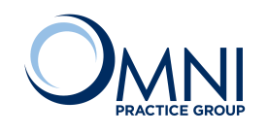People love benchmarks. They want to know how many glasses of water we should drink each day. How much we should work out every week. Or, how many miles per gallon our cars can achieve.
There are also benchmarks to look at when you are buying a practice. They may not necessarily be deal breakers, but they help determine what you will need to do to get to your target. Here are some of the benchmarks you should look at and calculate when buying a practice:
- Staff overhead as a percentage of collections - 20% to 25%. If it's higher, the practice is overpaying staff, underperforming collections, or too many staff.
- Facilities Expense - 7% to 9% of collections - Too high and the practice is either paying high rent, space is underutilized or production is too low.
- Supplies - 5% to 7% of collections - If this is too high, it could be that the practice is using high-end supplies, or the supplies inventory (or vendor) is not managed properly.
- Marketing expense - 3% to 5% depending on the growth stage. A practice that is looking to grow will have a high percentage. A static practice may not spend much on marketing at all.
- Collection Rate - Minimum of 98% for a well-run practice. A low rate means the front desk is not keeping up or managing the accounts receivables very well.
- Total Overhead (all expenses less owner and associate pay) - Ideally should be less than 85%.
Contact me if you would like more information - [email protected].


 RSS Feed
RSS Feed